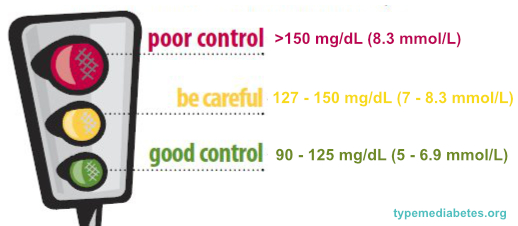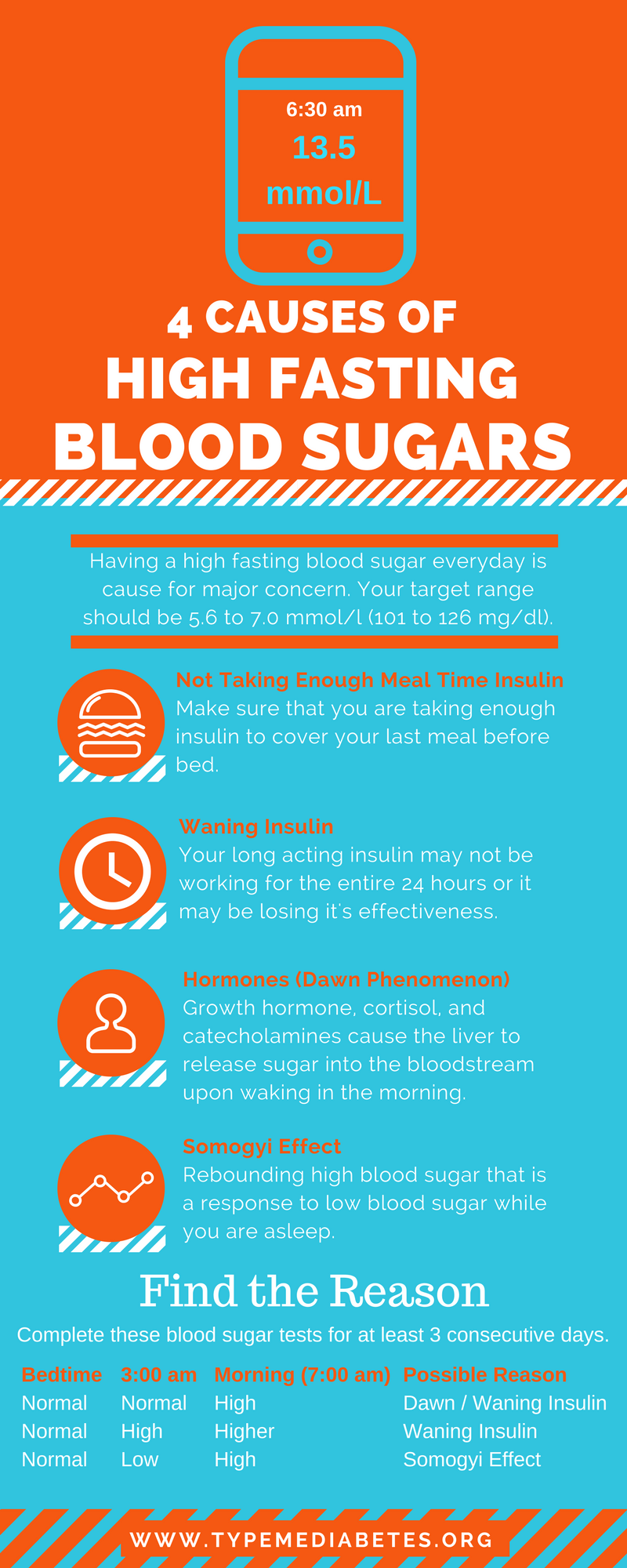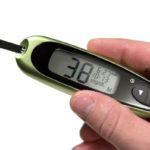Is Your Fasting Blood Sugar High Every Morning?

I recently had an issue where no matter what I did, my fasting blood sugar levels were always high every morning. They were in the range of between 12 mmol/L to 16 mmol/L. At first I chalked it up to overdoing it around the holiday season. Eating way more carbs than usual, especially late at night and very close to bedtime. I figured that I was off with my bolus for the meals I ate at night. However, after I cut out the extra carbs and still got high readings in the morning, I knew something was off.
I realized that every morning religiously, I would wake up between 3 am and 4 am with a high blood sugar. Unfortunately if my blood sugar is above 8 mmol/L I cannot sleep. This problem prevented me from getting good quality sleep. I would often have to correct and monitor before I could go back to bed. I started to analyze my diet and my habits to see where I was going wrong. If you are experiencing a similar issue you can start with the below recommendations.
Things to rule out as causes of high fasting blood sugar levels.
 The main concern is having a high fasting blood sugar for more than 4 or 5 days consecutively. The first step is to eliminate all of the below issues as being the culprit. Sometimes we overlook the simplest or most obvious things.
The main concern is having a high fasting blood sugar for more than 4 or 5 days consecutively. The first step is to eliminate all of the below issues as being the culprit. Sometimes we overlook the simplest or most obvious things.
1. Not taking enough meal time insulin
This is the first thing to look into. Make sure that you correctly determine the number of carbohydrates in your last meal of the day and take the insulin to suit. Be sure to also look out for sources of hidden carbs as well. Our bodies react to food and insulin differently at different times of the day. Many individuals including myself have a different carb to insulin ratio at night. I normally have to take a bit more insulin at night especially if the meal is high in carbohydrates(50 grams and over).
Try eating your last meal at least 2 hours before bed so that you can check the 2 hour post dinner blood sugar reading. This will indicate if you are indeed giving the correct amount of insulin. If you have a good reading before bed but it’s much higher in the morning, then there is definitely another issue.
2. Expired or defective insulin
There are specific requirements for storing and using insulin. Two things that render insulin ineffective are temperature and expiration. I once had an insulin pen that was exposed to way too much heat and it resulted in my blood sugar levels being high. As soon as started dosing with the new pen my blood sugar went back to normal.
3. Lypohypertrophy
Lipohypertrophy is a medical term that refers to a lump under the skin caused by accumulation of extra fat at the site of many subcutaneous injections of insulin. The area may sometimes be mildly painful, and may change the timing or completeness of insulin action. Insulin may not be absorbed consistently, which can mean the insulin takes longer to be absorbed, leading to higher than normal blood glucose levels.
After I made sure these issues were not affecting me I moved on to the next possible suspects. The Dawn Phenomenon or the Somogyi Effect.
1. Somogyi Effect
If the blood sugar level drops too low during the night, hormones (such as growth hormone, cortisol, and catecholamines) are released. These help reverse the low blood sugar level but may lead to blood sugar levels that are higher than normal in the morning. The liver can also release glucose into the bloodstream to combat and extremely low blood sugar level.
2. Dawn Phenomenon
The dawn phenomenon is a normal rise in blood sugar as a person’s body prepares to wake up. In the early morning hours, hormones (growth hormone, cortisol, and catecholamines) cause the liver to release large amounts of sugar into the bloodstream. For people without diabetes, the body produces insulin to control the rise in blood sugar. This may cause high blood sugar in the morning (before eating). You might be able to make changes in the timing of your meals, medications, or insulin injections to help prevent dawn phenomenon. First, keep a detailed record of what’s happening in the evening, night time and in the morning, including your blood sugar levels, eating habits, insulin, and physical activity.
3. Long Acting Insulin Not Working For the Entire 24 Hours (Waning Insulin)
THIS WAS THE CULPRIT FOR ME! I would normally go to sleep with a blood sugar of between 6.5 mmol/L and 7.5 mmol/L. Between 3:00 a.m and 4:00 a.m I would have a reading of between 12 mmol/L and 16 mmol/L. I normally took my basal (Lantus) insulin in the morning around 7:00 a.m. Lantus is supposed to be active for 24 hours controlling your blood sugar levels when you are not eating. However, in some individuals like myself, it only lasts about 18 to 20 hours. During long periods of time when we are not eating (such as sleeping), the liver releases glucose to fuel the body. In my case, there was no long acting insulin in my body to handle this glucose, resulting in my high fasting blood sugars.
Also note that not eating will not help the issue. One may tend to not want to eat if they have a high fasting blood sugar. Eating and taking insulin will signal to the body that the fasting period is over and there is no need for the liver to release glucose into the bloodstream.
The solution to my problem was extremely simple. After presenting my findings to my doctor, she recommended switching my long acting insulin dosage to at night just before bed. I also increased my dosage by 2 units to improve my blood sugar throughout the day. I also made sure that I ate a healthy breakfast within at most an hour of waking up. Changes in Lantus dosages and usage normally takes about 3 days to take effect. Lo and behold, after this adjustment period, my fasting blood sugar readings returned to normal. They are usually between 4 mmol/L and 7 mmol/L.
So What’s Making You High?
As diabetics we are constantly striving to maintain a perfect blood glucose level. Having a high fasting reading constantly is a cause for major concern and can definitely affect your hbA1c and by extension your health if not corrected. For 3 or 4 days in a row, plan specific blood glucose testing times. You should also prepare your own meals during this testing period so that you are certain of the carbohydrate content. Try to have your last meal at least 2 hours before bedtime. Check your blood glucose at bedtime, wake up around 3 a.m to test again, and take the final reading at your usual wake-up time. Comparing these results can identify what is the underlying cause of your high blood glucose level in the morning. Sometimes it can also be a combination of issues. The table below is a guideline to follow to assist in identifying the problem. Always seek medical advice from your doctor pertaining to medication dosages and modifications.
| Find the Culprit of your Fasting High Blood Glucose Level | |||
| Bedtime | 3 a.m. | Morning | Likely Culprit |
| Normal | Normal | High | Dawn Effect/Waning Insulin |
| Normal | High | Higher | Waning Insulin |
| Normal | Low | High | Somogyi Effect |
Table credit: Diabetes Forecast
| You can create the table below in Excel or simply write it down. | ||||
| Day | 2 Hours After Last Meal of the Day | Before Bedtime | 3:00 am | Upon Waking Up |
| Day 1 | ||||
| Day 2 | ||||
| Day 3 | ||||
| Day 4 | ||||
If your 2 hour post dinner time is close to your bedtime there is no need to test again. If it is more than an hour apart include both tests. These are quite a lot of test which will be done over a couple day. Your fingers will be sore but it will lead to discovering your underlying problem.
INFOGRAPHIC






 My name is Christopher and I am a type 1 diabetic. I was diagnosed at age 6 in 1993 and with good management I have been healthy and complication free to date. Like most persons living with type 1 diabetes, I have had my ups and downs, daily struggles and issues. However, I intend to live my life to the fullest and I will not let diabetes get in my way.
My name is Christopher and I am a type 1 diabetic. I was diagnosed at age 6 in 1993 and with good management I have been healthy and complication free to date. Like most persons living with type 1 diabetes, I have had my ups and downs, daily struggles and issues. However, I intend to live my life to the fullest and I will not let diabetes get in my way.




Leave a Reply
1 Comment on "Is Your Fasting Blood Sugar High Every Morning?"
[…] you expected, it can indicate that you are having hyperglycemia episodes that you are unaware of. You may be experiencing the dawn phenomenon often, you may be miscalculating the carbs in a meal you frequently eat, your normal insulin to carb […]